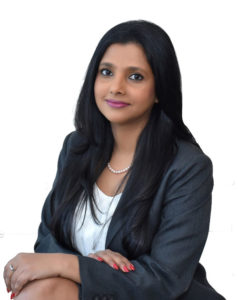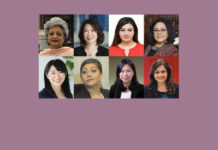A shift in sociocultural dynamics requires respect, role models and institutional responsibility
“The gender-based challenges women lawyers face are not specific to the profession. These challenges emanate from sociocultural and economic factors that exist across other professions. The only difference is that India has a law around sexual harassment, so lawyers have a better understanding of their own rights. But it’s still never easy to speak up, no matter how emboldened you are. Just because one is a lawyer doesn’t change anything. The apprehension and the journey remain the same.
The hesitation to report harassment emanates from seeing how some of these issues blow up. When you look at all the #MeToo callouts that have happened, you see the backlash against complainants. It’s a huge emotional effort to be willing to endure that.

Chief counsel
Thomson Reuters, Mumbai
Even with the legal framework that exists, there is a social, cultural impact that one has to be prepared to face. There are perceptions at play with people forming opinions and passing judgments. All of that is challenging to deal with.
The sexual harassment law is a deterrent akin to laws that prohibit drunk driving. It doesn’t mean there are no incidents of drunk driving, but the number of incidents reduce. It has raised awareness levels, and that itself is a big step towards changing social dynamics in the workplace in a better way.
I was always very aware of my gender as an in-house counsel in the banking and finance industry, because often I was the only woman in a room full of suits. In my earlier years, I encountered challenges due to misogynistic behaviour, inappropriate workplace conduct, or mansplaining.
But I think as we grow in our career and gain credibility, we become more assertive. The behaviour doesn’t stop, but we become better equipped to deal with it.
I see a change in behaviour, but I don’t know if it is because the world has truly evolved, or because I have moved up the leadership chain now.
It’s important to build credibility, and that can only come with being the best version of yourself at work, and giving it 100%. It’s also vital to create a network of mentors, officers and buddies that provide a bulwark for the tough times. For younger women at work, having a mentorship arrangement with guidance, support and encouragement from seniors will go a long way.
Recognizing the significance of women in the workforce, and how crucial they are to the economy, will help create an ecosystem that gives women greater support to help them succeed at work. There has been some progress empowered by laws in India to provide crèches, paternity leave, increased maternity policy, etc., but all of that needs a social, cultural, nurturing evolution.
It’s about women being there for other women, whether at the workplace or in your family. And women raising strong men and strong women. What we see at home often translates to how we are in the workplace. We need to create an ecosystem that changes age-old values. It has definitely improved a lot from a prior generation, but we still have a long way to go. I have friends and colleagues who are fantastic fathers and a great source of support for their wives. I see them more involved in raising their children and participating in responsibilities at home. I don’t think we should paint everybody with the same brush. We just need more men like that.”
Senior women lawyers across Asia share personal stories of successes, struggles and strategies for a more inclusive legal profession. The following mosaic of personal stories identifies some of the nuances that typify women’s experiences in particular Asian jurisdictions, while also drawing on the wealth of shared experiences that bind them.



























